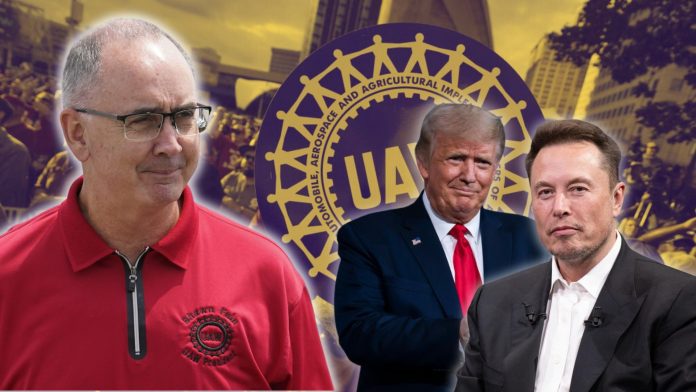On August 13, the United Auto Workers (UAW) filed charges with the National Labor Relations Board (NLRB) against former President Donald Trump and Tesla CEO Elon Musk, accusing them of threatening and intimidating workers. The charges stem from a two-hour conversation between Trump and Musk on the social media platform X, where they discussed workers striking and walking off the job.
During the conversation, Trump praised Musk, saying, “You’re the greatest cutter. I mean, I look at what you do. You walk in, you just say: ‘You want to quit?’ They go on strike – I won’t mention the company’s name – but they go on strike. And you say: ‘That’s okay, you’re all gone.'”
The UAW highlighted that workers cannot be fired for going on strike under federal law, and threatening to do so violates the National Labor Relations Act. UAW President Shawn Fain condemned the remarks, stating, “Both Trump and Musk want working-class people to sit down and shut up, and they laugh about it openly. It’s disgusting, illegal, and totally predictable from these two clowns.”
The NLRB, with its limited power to punish unlawful labor practices, can order employers to cease such conduct and inform workers of their rights. The UAW’s complaints against Trump and Musk claim both men suggested they would fire employees engaged in protected concerted activity, including striking. However, the complaints did not provide further details.
The UAW’s move comes after the union’s successful six-week strike against Detroit’s Big Three automakers last autumn, which led to record contracts and significant labor expenses for Ford, General Motors, and Stellantis.
However, Musk, who has endorsed Trump for president, has had several legal battles with the NLRB. His companies, Tesla and SpaceX, are involved in lawsuits challenging the NLRB’s structure, with accusations of unlawful firings and anti-union practices. In March, a U.S. appeals court upheld an NLRB ruling that Musk had illegally threatened Tesla employees in a 2018 tweet regarding unionization.




